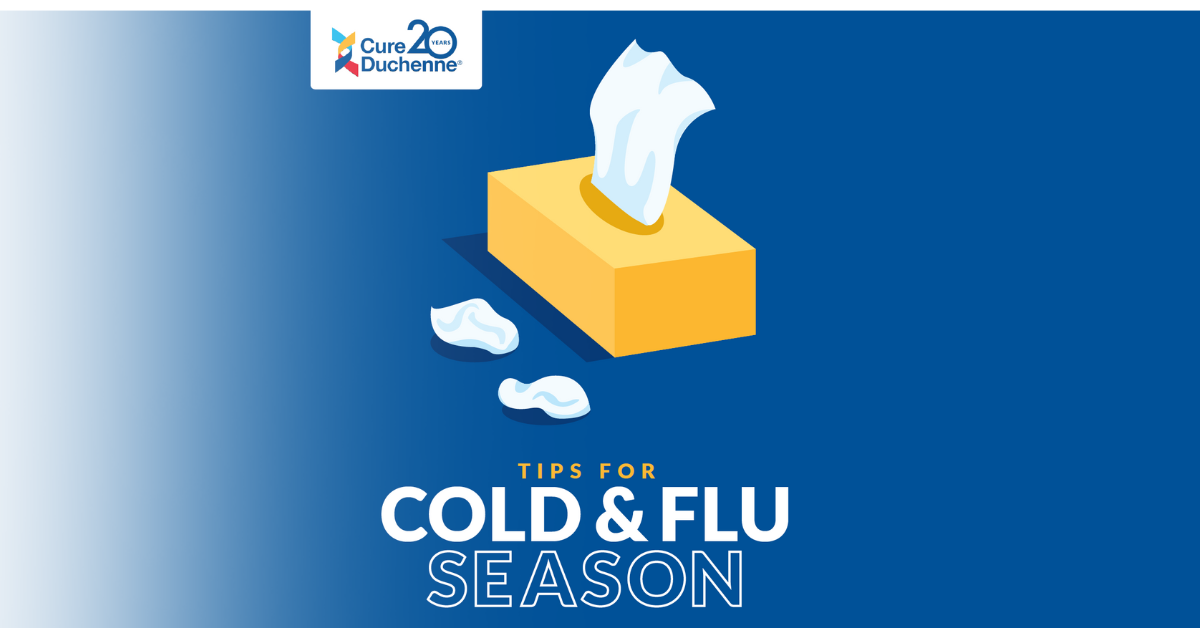5 Tips for Staying Well During Cold and Flu Season

While COVID-19 is past its peak, the virus has not completely disappeared, and neither have the yearly cold and flu viruses. These viruses hit their peaks between December and February, according to the Centers for Disease Control and Prevention (CDC).
Many patients with Duchenne muscular dystrophy are at increased risk of catching one of these viruses because they are immunocompromised, which can be a side-effect of chronic steroid use. Additionally, weakened respiratory muscles can potentially turn a common cold into something more serious.
The newly updated form of the COVID-19 vaccines, which target current circulating Omicron subvariants, were approved by the FDA and CDC in October 2023. The CDC’s guidance is that anyone immunocompromised needs at least one dose of the updated 2023-2024 vaccine.*
The CDC has come up with a list of things that can help prevent sickness this flu season:
- Get a flu vaccine
- This includes individuals with Duchenne, the whole family, and/or those who are in close proximity to the individual with Duchenne.
- September and October are the best times to get vaccinated, but vaccinations after autumn can protect people from the flu virus.
- Cover your mouth when you sneeze or cough
- Don’t touch your face and disinfect regularly
- Frequently wash your hands with soap and water
- Take antiviral drugs
- Consult your doctor first. This treatment can shorten the time of sickness and make the illness milder. They work best when started within two days of symptoms. A number of COVID-19 antiviral drugs are now available.
Hawken’s Thoughts:
Hawken Miller is a journalist, bringing his experience writing for outlets like The Washington Post and BioNews, along with his personal experience living with Duchenne muscular dystrophy, to CureDuchenne. Learn more about Hawken here.
I like to keep a travel-size bottle of hand sanitizer in the side pocket of my wheelchair. If I want to wash my hands but a bathroom sink is not accessible, I can quickly reach into my bag and dispel those nasty germs.
It’s also important to maintain a healthy diet, which includes fruits and vegetables like kale, lettuce, bell peppers, tomatoes, and oranges. These fruits and vegetables have high levels of vitamin C. Also known as ascorbic acid, vitamin C gives the immune system a boost and has been shown to reduce the length and severity of colds.
If you do get sick, make sure to drink plenty of water, rest as much as possible, and go to the emergency room if symptoms get worse, oxygen saturation is low, and breathing becomes difficult. This article written by Duchenne doctors is a helpful resource on how to approach COVID-19 with Duchenne.
*Always consult with your physician for medical advice
More links and resources:
https://www.cdc.gov/flu/prevent/prevention.htm
https://www.cdc.gov/respiratory-viruses/whats-new/antiviral-treatments.html
https://www.yalemedicine.org/news/updated-covid-vaccine-10-things-to-know




